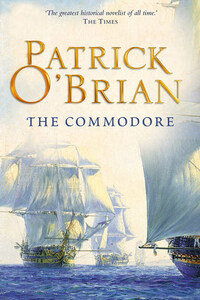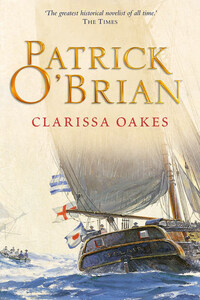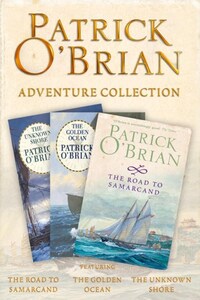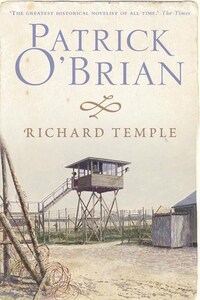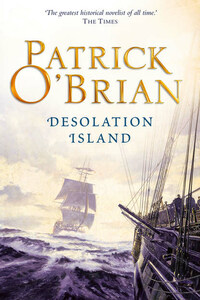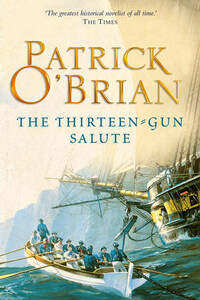The sails of a square-rigged ship, hung out to dry in a calm.
1 Flying jib
2 Jib
3 Fore topmast staysail
4 Fore staysail
5 Foresail, or course
6 Fore topsail
7 Fore topgallant
8 Mainstaysail
9 Main topmast staysail
10 Middle staysail
11 Main topgallant staysail
12 Mainsail, or course
13 Maintopsail
14 Main topgallant
15 Mizzen staysail
16 Mizzen topmast staysail
17 Mizzen topgallant staysail
18 Mizzen sail
19 Spanker
20 Mizzen topsail
21 Mizzen topgallant
Illustration source: Serres, Liber Nauticus. Courtesy of The Science and Technology Research Center, The New York Public Library, Astor, Lenox, and Tilden Foundation
Chapter One
Thick weather in the chops of the Channel and a dirty night, with the strong north-east wind bringing rain from the low sky and racing cloud: Ushant somewhere away on the starboard bow, the Scillies to larboard, but never a light, never a star to be seen; and no observation for the last four days.
The two homeward-bound ships, Jack Aubreyâs Surprise, an elderly twenty-eight-gun frigate sold out of the service some years ago but now, as His Majestyâs hired vessel Surprise, completing a long confidential mission for Government, and HMS Berenice, Captain Heneage Dundas, an even older but somewhat less worn sixty-four-gun two-decker, together with her tender the Ringle, an American schooner of the kind known as a Baltimore clipper, had been sailing in company ever since they met north and east of Cape Horn, about a hundred degrees of latitude or six thousand sea-miles away in a straight line, if straight lines had any meaning at all in a voyage governed entirely by the wind, the first coming from Peru and the coast of Chile, the second from New South Wales.
The Berenice had found the Surprise much battered by an encounter with a heavy American frigate: even more so by a lightning-stroke that had shattered her mainmast and, far worse, deprived her of her rudder. The two captains had been boys together, midshipmen and lieutenants: very old shipmates and very intimate friends indeed. The Berenice had supplied the Surprise with spars, cordage, storage and a remarkably efficient Pakenham substitute rudder made of spare topmasts; and the two shipâs companies, in spite of an initial stiffness arising from the Surpriseâs somewhat irregular status, agreed very well together after two ardent cricket-matches on the island of Ascension, where a proper rudder was shipped, and there was a great deal of ship-visiting as all three lay with loose flapping sails in the doldrums, a sweltering fortnight with melted tar dripping from the yards. Though unconscionably long, it was a most companionable voyage, particularly as the Surprise was able to do away with much of the invidious difference between deliverer and delivered by providing the sickly and under-manned Berenice with a surgeon, her own having been lost, together with his only mate, when their boat overturned not ten yards from the ship â neither could swim, and each seized the other with fatal energy â so that her people, sadly reduced by Sydney pox and Cape Horn scurvy, were left to the care of an illiterate but fearless loblolly-boy; and to provide her not merely with an ordinary naval surgeon, equipped with little more than a certificate from the Sick and Hurt Board, but with a full-blown physician in the person of Stephen Maturin, the author of a standard work on the diseases of seamen, a Fellow of the Royal Society with doctorates from Dublin and Paris, a gentleman fluent in Latin and Greek (such a comfort to his patients), a particular friend of Captain Aubreyâs and, though this was known to very few, one of the Admiraltyâs â indeed of the Ministryâs â most valued advisers on Spanish and Spanish-American affairs: in short an intelligence-agent, though on a wholly independent and voluntary basis.
Yet a surgeon, even if he may also be a physician with a physical bob and a gold-headed cane who has been called in to treat Prince William, the Duke of Clarence, is not a mainmast, still less a rudder: he may uphold the peopleâs spirits and relieve their pain, but he can neither propel nor steer the ship; the Surprises had therefore every reason to feel loving gratitude towards the Berenices, and since they knew the difference between right and wrong at sea they made full acknowledgment of their obligations as they passed through the frigid, temperate and torrid zones and so to the merely wet and disagreeable climate of home waters; but at no time could they be brought to love the Berenice herself.
Their feelings were shared by the crew of the Ringle, very much so indeed; for both the frigate and the schooner were quite exceptionally weatherly vessels, fast, capable of sailing very close to the wind â the schooner wonderfully close â and almost innocent of leeway, while the much larger and more powerful two-decker was but a slug on a bowline. She got along well enough when the breeze was abaft the beam â she liked it plumb on the quarter best â but as it came forward so her people exchanged anxious looks; and when at last studdingsails could no longer stand and when the ship was hauled close to the wind, the bowlines twanging taut, all their exertions could not bring her to within six points, nor prevent her sagging most disgracefully to leeward, like a drunken crab.
